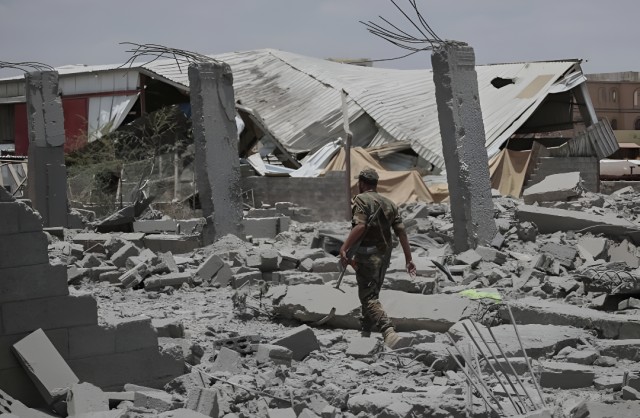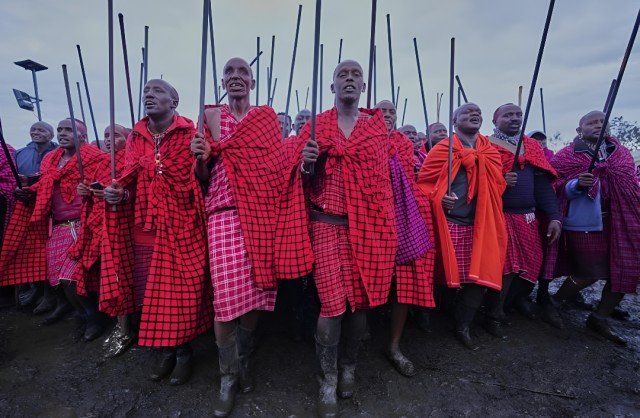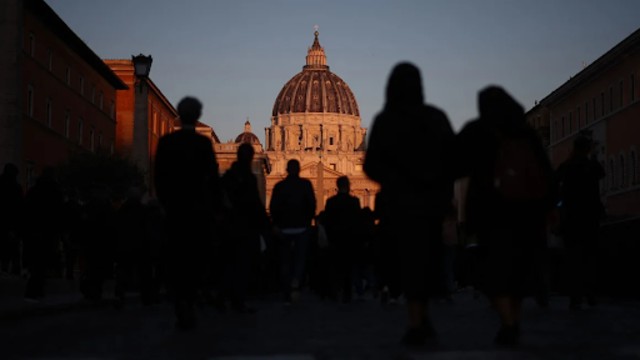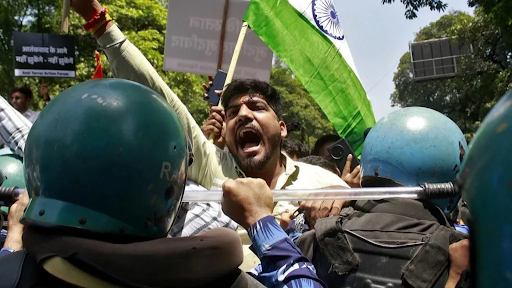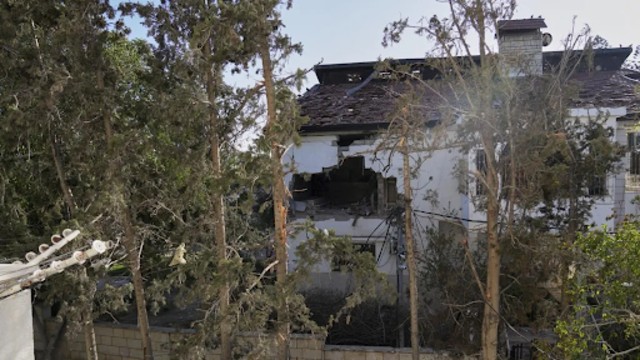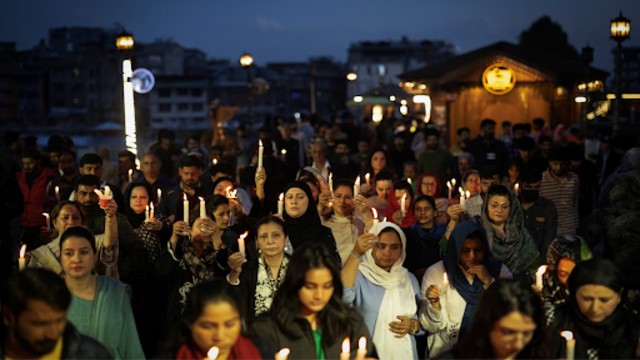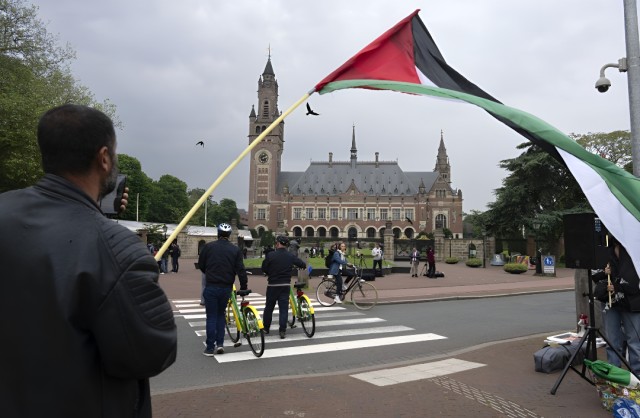
A lone demonstrator waves the Palestinian flag outside the Peace Palace, rear, housing the International Court of Justice, or World Court, in The Hague, Netherlands, on May 24, 2024. (AP Photo)
The International Court of Justice (ICJ) in The Hague began hearings on Monday, focusing on Israel's obligation to ensure humanitarian aid reaches Palestinian civilians in Gaza and other occupied territories. The proceedings come in response to a request made by the United Nations General Assembly last year, asking the ICJ to evaluate Israel's legal duties following its block on the U.N. agency for Palestinian refugees.
The Legal Battle for Humanitarian Aid
In a resolution sponsored by Norway, the U.N. General Assembly requested an advisory opinion from the ICJ. This opinion, though non-binding, holds significant legal weight. It seeks to clarify whether Israel is legally required to "ensure and facilitate" the unhindered delivery of critical supplies like food, fuel, and medicine to Palestinians in Gaza. The urgency of the issue has been heightened by the deteriorating humanitarian situation in the region.
Gaza's Humanitarian Crisis Deepens
Since March 2, Israel has imposed a severe blockade on Gaza, preventing the entry of essential goods and supplies. Humanitarian organizations have warned that the blockade is pushing Gaza's aid system to the brink of collapse. The World Food Program announced last week that its food stocks have run out, leaving hundreds of thousands of Palestinians without sustenance. As Israel’s military actions intensify, efforts to broker a ceasefire have failed to make headway.
The United Nations' Role and Global Participation
The U.N. will present its case first in Monday’s hearing, followed by representatives from Palestine. A total of 40 nations and four international organizations are scheduled to participate in the proceedings. While Israel will not speak at the hearings, it may submit a written statement. The United States, which opposed the U.N. resolution, is expected to speak on Wednesday.
Impact of the Advisory Opinion
Although the advisory opinion from the ICJ will not be legally binding, it could have significant consequences. Experts suggest that the ruling could shape international law and influence future aid to Israel. "Advisory opinions provide clarity," said Juliette McIntyre, an international law expert. Governments may use the opinion to pressure Israel into relaxing its restrictions on humanitarian aid.
Israel's Response and Past Controversies
Israel has long maintained that the U.N. is biased against it and has dismissed previous advisory rulings. In 2004, the ICJ found Israel's West Bank separation barrier illegal, a decision that Israel ignored. The current legal proceedings come amid mounting international scrutiny of Israel's actions in Gaza.
Accusations Against U.N. Agency and the Blockade's Impact
Israel’s ban on the U.N. Relief and Works Agency (UNRWA) from operating within its borders has exacerbated the humanitarian crisis. The agency, which has provided aid to Palestinians for decades, has faced increasing criticism from Israeli officials. Prime Minister Benjamin Netanyahu and his far-right allies allege that the organization is infiltrated by Hamas, a claim that UNRWA denies. Despite the accusations, the agency has continued to provide critical services, including healthcare and education, to millions of Palestinians across Gaza and other regions.
Human Toll of the Conflict
The ongoing conflict has led to staggering casualties, with over 51,000 Palestinians reported dead, most of whom are women and children. Israel claims it has killed around 20,000 militants, though it has not provided evidence to support this. As the legal hearings unfold, the world watches closely, hoping for a resolution that may bring relief to the millions suffering in Gaza.
Looking Ahead
The ICJ's decision could take months, but its influence is likely to resonate across international relations, shaping future actions in the region. Whether it will compel Israel to change its stance remains uncertain, but the outcome of this case may set important precedents for humanitarian aid in conflict zones worldwide.


